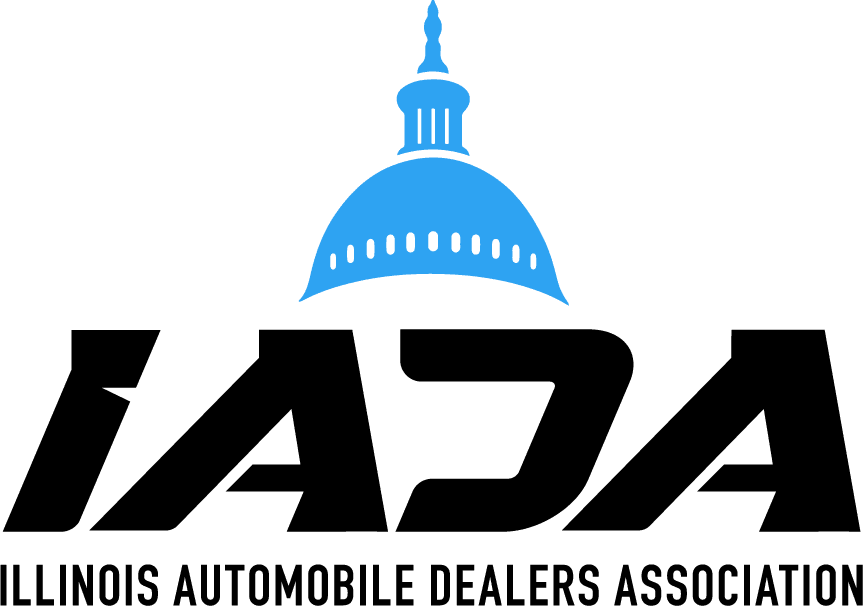
Warranty Laws in Illinois
Motor Vehicle dealers are under strict federal and state regulations concerning motor vehicle warranties. The Magnuson-Moss Act of 1975, Federal Trade Commission and the Uniform Commercial Code all greatly affect disclosures made on sales.
The following is an explanation of the meaning of the more commonly used terms:
WARRANTY: Promise made in connection with the sale of a product by a supplier to a buyer. It relates to the nature of the material or workmanship. It affirms or promises that the material or workmanship is free of defects or will meet a specified level of performance over a specified period of time. A warranty can also be an undertaking in connection with the sale of the product to refund, repair, replace, etc., the product in the event that the product does not meet the specifications set forth in the undertaking. (NOTE: The Magnuson-Moss Act only applies if the warranty is in writing. An oral warranty is not subject to Magnuson-Moss.)
IMPLIED WARRANTY: A warranty which is not expressly given in writing or orally. An implied warranty is created (unless excluded in writing) at the time of sale of all goods. Example of implied warranty: goods are assumed to be merchantable.
MERCHANTABILITY: In every sale, there is an implied warranty that goods are merchantable. For goods to be merchantable, they must be fit for the ordinary purposes for which such goods are used.
FITNESS FOR A PARTICULAR PURPOSE: Where the seller at the time of sale has reason to know any particular purpose for which the goods are required and that the buyer is relying on the seller`s skill or judgment to select or furnish suitable goods, there is an implied warranty that the goods shall be fit for such purposes.
SERVICE CONTRACTS: Contracts in writing to perform for a fixed period of time or specified duration, services relating to the maintenance or repair of a consumer product. If the customer is paying a fixed sum over and above the purchase price for the service or protection, then it is a service contract.
UNIFORM COMMERCIAL CODE: The Uniform Commercial Code (UCC) was developed during the 1950s and early 1960s by the American Law Institute and the National Conference of Commissioners on Uniform State Laws. The primary purpose of the effort was to bring uniformity to the laws of the various states regulating commercial transactions. Each state was then free to adopt the Code in its entirety or to make such changes as the state deemed necessary, or to refuse to adopt the Code at all, as the case may be. At the present time, all states with the exception of Louisiana have adopted the UCC either in whole or with some modifications.
FEDERAL TRADE COMMISSION: The Federal Trade Commission was created in 1914. It was organized as an independent administrative agency in 1951 with the power to issue quasi-judicial and quasi-legislative rules or regulations. The basic purpose of the FTC is to prevent the use in commerce of unfair methods of competition and unfair or deceptive acts or practices.
Due to some confusion that exists in everyone`s mind, we are going to try to explain implied warranty vs. express warranty.
EXPRESS WARRANTY
Generally, an express warranty is one where you actually give the buyer a piece of paper telling them what you will do to repair or replace the vehicle if it breaks down within a specified period of time. We call it a “WARRANTY” when it is really an EXPRESS WARRANTY.
IMPLIED WARRANTY
You do not give an IMPLIED WARRANTY – you create one every time you sell a product or vehicle.
The seller is presumed to be an expert on the vehicles or products he or she sells; therefore, he or she implies that the vehicle or product is merchantable, which means it is expected to perform. There is also the implication that the product or vehicle is fit for the particular purpose (if the seller knew the use) that the buyer had in mind when he or she bought the product or vehicle. Both of these IMPLIED WARRANTIES of merchantability and fitness are in effect when the sale is made, unless you deny IMPLIED WARRANTIES in writing.
You cannot deny an IMPLIED WARRANTY if you give an EXPRESS WRITTEN WARRANTY. However, you can limit it (if you give a “LIMITED WARRANTY”) to the same length of time as the “LIMITED EXPRESS WARRANTY” runs, for example, 90 days.
There has also been confusion in exactly defining the line between a warranty and a service contract.
Warranty: The Magnuson-Moss Act basically defines “warranties” as promises by the warrantor to the purchaser that the product is defect free or will meet a specified level of performance over a specified period of time and relates to the material or workmanship of the product.
Service Contract: Service Contracts are defined as contracts in writing to perform for a fixed period of time or specified duration services relating to the maintenance or repair of a consumer product.
The following requirements must be met in order to be classified as a warranty. The protection being provided the consumer must be:
- Part of the “basis of the bargain” between the dealer and the purchaser; and
- An affirmation or promise from the dealer to the purchaser that the motor vehicle is defect free or will meet a specified level of performance over a specified period of time; and
- The customer is not paying a fixed sum of money over and above the purchase price for the protection.
Again, if the customer is paying a fixed sum over and above the purchase price for the service or protection, it is a service contract.
UNIFORM COMMERCIAL CODE
EXPRESS WARRANTIES
Section 2-313 of the UCC (810 ILCS 5/2-313) covers express warranties providing:
Express warranties by the seller are created as follows:
- (a) Any affirmation of fact or promise [including any description] made by the seller to the buyer which relates to the goods and becomes part of the basis of the bargain creates an express warranty that the goods shall conform to the affirmation or promise.
- (b) is not necessary to the creation of an express warranty that the seller use formal words such as “warranty” or “guarantee” or that he have a specific intention to make a warranty….
Generally, the most obvious example of an express warranty is the manufacturer`s written warranty issued at the time of sale for a specified period of time.
Dealers essentially pass on to buyers the manufacturer`s express warranty and perform required service under the warranty as the manufacturer`s agent. It is important to note that promises or representations made by dealer prior to the sale have been construed by Illinois courts as enforceable express warranties (i.e., that the car has been inspected for and is free from defects; that the car is in undamaged condition (when, in fact, it has been in a presale accident); that the car will provide reliable transportation for the duration of the warranty). (Redmac, Inc. v. Computerland of Peoria (3rd Dist. 1986), 489 N.E. 2d 380; Stamm v. Wilder Travel Trailers (5th Dist. 1976), 358 N.E. 2d 382; Sass v. Spradlin (2nd Dist. 1978), 384 N.E. 2d 464; Capitol Equipment Ent. v. North Pier Terminal Co. (Ist Dist. 1969), 254 N.E. 2d 542).
Further, to the extent that a clause generally disclaiming all warranties or words or conduct relevant to the creation of an express warranty conflict or are otherwise inconsistent with warranty promises, Illinois courts have refused to allow such disclaimers to invalidate the express warranty or warranty promises. (Blankenship v. Northtown Ford, Inc. 4th Dist. 1981), 95 111. App. 3d 303, 420 N.E. 2d 167; see also, 111. Rev. Stat. 1989, ch. 26, pars. 2-313; 2-316, Comment 4).
IMPLIED WARRANTY OF MERCHANTABILITY
Section 2-314 of the UCC (810 ILCS 5/2-314), states that “[u]nless excluded or modified … a warranty that the goods shall be merchantable is implied in a contract for their sale if the seller is a merchant with respect to the goods of that kind.” Merchantable means “fit for the ordinary purposes for which such goods are used.” (Id. par. 2-314(2)(c)).
The implied warranty of merchantability is a merchant`s promise that the goods sold will do what they are supposed to do. In other words, it is an implied promise that the goods are fit to be sold. UCC implied warranties have been construed as applicable not only to new cars, but also to used cars. Jackson v. H. Frank Olds, Inc., (1st Dist. 1978) 382 N.E. 2d 550; Overland Bond & Investment v. Howard (1st Dist. 1972), 292 N.E. 2nd 168).
In order to disclaim the implied warranty of merchantability, proper phraseology must be used or the disclaimer will fail. (Schultz v. Jackson (3rd Dist. 1979), 385 N.E. 2d 162). Any disclaimer must be made prior to or at the time of consummation of the transaction. (Midland Supply Co., Inc. v. Ehret Plumbing & Heating Co. (5th Dist. 1982), 440 N.E. 2d 153). Additionally, the federal Magnuson-Moss Warranty Act imposes limitations on disclaimers of implied warranty. (15 U.S.C. Sec. 2308). Practically speaking, the implied warranty of merchantability recognizes that purchasers of vehicles have expectations for the performance of their vehicles. (Blankenship v. Northtown Ford, Inc. (4th Dist. 1981), 95 Ill. App. 3d 303, 420 N.E. 2d 167).
IMPLIED WARRANTY OF FITNESS FOR PARTICULAR PURPOSE
Section 2-315 of the UCC covers the implied warranty of fitness for a particular purpose. If the customer relies on the dealer`s advice, skill or judgment to select a vehicle to be used for a particular purpose, the UCC will imply a seller`s warranty into the contract that the vehicle is fit for the particular purpose. (810 ILCS 5/2-315).
“AS IS” LANGUAGE
With respect to used cars, and if the dealer does not offer a written warranty, “as is” “with all faults” or other language calls the buyer`s attention to the exclusion of warranties allowing dealers to disclaim implied warranties. (810 ILCS 5/2-316(3)(a)).
But note, under the Illinois Consumer Fraud Act, there are specific provisions with regard to used car sales. Specifically, pursuant to Section 2L (815 ILCS 505/2L), unless properly disclaimed by use of a specified “As Is” provision, the seller of a new or used vehicle may be liable for a share of the costs of any necessary repairs to the vehicle`s Power Train depending on the age of the vehicle. (See Jackson v. H. Frank Olds, Inc.(1st Dist. 1978), 65 M. App. 3d 571, 382 N.E. 2d 550).
The Magnuson-Moss Warranty Act is a federal law that governs consumer product warranties. The Act requires businesses to determine whether to warrant their products in writing. Once the business offers a written warranty, it must comply with the Act. There are FTC rules under the Act. The Act and the Rules establish three basic requirements applicable to a warrantor or seller:
- The warrantor must designate or title the warranty as “full” or “limited.”
- The warrantor must state certain specified information about warranty coverage in a single, clear and easy-to-read document.
- The warrantor, or seller, must ensure that warranties are available where warranted consumer products are sold so that consumers can read them before buying.
Notably, under 15 U.S.C. Sec. 2304, failure to clearly designate a warranty as “limited”, may result in its designation as “full” under Section 2304, which does not allow any disclaimer or limitation. Even if a limited warranty, Magnuson-Moss does not allow disclaimer of implied warranties but only limitation on duration to the same time period as the written warranty. (15 U.S.C. Sec. 2308). Thus, any written warranty gives the customer the implied warranty of merchantability under the Section 2-314 of the UCC (810 ILCS 5/2-314). Magnuson-Moss also gives the customer the implied warranty of fitness for a particular purpose under 810 ILCS 5/2-315, although that warranty should not apply to situations where goods are put to ordinary use. Magnuson-Moss makes breach of warranty a violation of federal law and enables consumers to recover attorney`s fees. (15 U.S.C. Sec. 2310(d)(2)).
Generally, the manufacturer, not the dealer, issues the vehicle`s written warranty. Thus, in Magnuson-Moss actions, this is one defense available to the dealer. Nonetheless, because the dealer is a merchant of vehicles, the sale contract should disclaim UCC warranties, which exist independently of Magnuson-Moss. Problem areas may arise for dealers with respect to used cars where, for example, a “30 day, 50/50” warranty is given. This invokes Magnuson-Moss coverage against the dealer (15 U.S.C. Sec. 2308(a)(2)).
The FTC Used Car Rule requires dealers to prepare and display a mandated window sticker called a “Buyers Guide” on every used vehicle made available for sale to a consumer purchaser (16 C.F.R. Pt. 455). The Buyers Guide, in the format, type style, type size, and wording required in the FTC`s Used Car Rule, must be given to the customer at the time of the sale, and the information contained in the Buyers Guide must be incorporated into the contract of sale for each vehicle. The Rule applies to Illinois dealers who offer 6 or more used vehicles for sale during a 12 month period.
Even though a demonstrator is not a “used” car in Illinois because it has not been placed in a “bona-fide consumer use” prior to sale, under the FTC Rule a demonstrator or any other vehicle which has been driven more than the limited distance necessary to move it to the new dealership or to test drive it prior to delivery to the customer is considered a “used” car and must have a sticker properly affixed. The Rule, however, further permits window stickers to be removed when the car is not “available” to consumer purchasers for sale. (By contrast, the MSRP sticker cannot be removed by the selling dealer). As stated in a FTC staff publication, there are also specific requirements if the manufacturer imposes a transfer fee to allow the purchaser to obtain coverage under the new car warranty. In this instance, the FTC does not consider this a warranty under the Rule, but rather a service contract.
The Rule requires disclosure on the sticker of material information concerning the applicable warranties, repair costs, the specific systems covered by any warranties, the duration of any warranties for each system covered, service contract availability, vehicle inspection by an independent mechanic and a list of some major defects that may occur in used vehicles. The FTC has authority to enforce the Rule in federal court (15 U.S.C. Sec. 45(m)(1)(A)); however, failure to disclose such material information or otherwise comply with the Rule may constitute an unfair or deceptive business practice against which enforcement might be sought by the Illinois Attorney General under Consumer Fraud and Deceptive Business Practices Act (815 ILCS 505/1 et seq.).
- PENALTY FOR NONCOMPLIANCE – Each violation of the rule carries a civil penalty of up to $ 10,000, which the FTC may seek in the appropriate Federal District Court.
- DEALER RECORD-KEEPING REQUIREMENTS – The rule imposes no dealer record-keeping requirements. However, because the”Buyers Guide” label is incorporated by reference in the contract of sale, the dealer should retain a final copy of the “Buyers Guide” and contract of sale for each used vehicle sold to a consumer, for the period of the applicable state statute of limitations on contract actions or the term of any consumer financing on the used vehicle, whichever is greater.
15-Day/500 Mile Used Vehicle Limited Implied Warranty of Merchantability for Power Train Components
Legislation that became effective on July 1, 2017 requires that most used vehicle retail sales are subject to a Used Vehicle Limited Implied Warranty of Merchantability for Power Train Components (UVLIWMPTC). Vehicles that are subject to the UVLIWMPTC cannot be sold AS IS and must include the Implied Warranties version of the FTC Used Car Buyers Guide instead.
The only vehicles that are exempt from the UVLIWMPTC are vehicles that are any one of the following:
- Vehicles with over 150,000 miles;
- Antique Vehicles (over 25 years old);
- Vehicles that have been branded as either “FLOOD” or “REBUILT” vehicles;
- Vehicles with an 8,000 pound or more Gross Vehicle Weight Rating.
If you make a retail sale of a used vehicle that does not meet one of the above exceptions, then you must provide a 15-day/500-mile warranty, whichever is first, for power train components and must provide a statutorily-mandated disclosure of the warranty to your customer. The warranty is met if the vehicle functions for the ordinary purpose of transportation and substantially free of defects in a power train component.
For the purpose of the statute, the term “power train component” is broadly defined to include the engine block, head, all internal engine parts, oil pan and gaskets, water pump, intake manifold, transmission and all internal transmission parts, torque converter, drive shaft, universal joints, rear axle and all rear axle internal parts, and rear wheel bearings. If a repair is needed on a covered power train component during the warranty period, the dealer must cover 50% of the repair cost of each of the first 2 repairs for the first $200 of repair costs plus the entire amount in excess of that. If the cost to repair is greater than the value of the vehicle, the dealer can opt to repurchase the vehicle from the customer at the same price that the customer had paid for it. The statute also requires that dealers make the following written disclosure, either on the buyers order or on a stand-alone disclosure, in at least 10-point type:
“Illinois Law requires that this vehicle will be free of a defect in a power train component for 15 days or 500 miles after delivery, whichever is earlier, except with regard to particular defects disclosed on the first page of this agreement. “Power train component” means the engine block, head, all internal engine parts, oil pan and gaskets, water pump, intake manifold, transmission, and all internal transmission parts, torque converter, drive shaft, universal joints, rear axle and all rear axle internal parts, and rear wheel bearings. You (the consumer) will have to pay up to $100 for each of the first 2 repairs if the warranty is violated.”.
The seller can disclose one or more specific defects and ask the customer to waive warranty coverage for those components by having the customer sign the following disclosure:
“Attention consumer: Sign here only if the seller has told you that this vehicle has the following problem or problems and you agree to buy the vehicle on those terms:
1………………………………………………..
2………………………………………………..
3………………………………………………”.
The selling dealer is not required to make the above disclosures if the dealer offers an express warranty that offers equal or greater coverage than the UVLIWMPTC. To avoid the disclosure requirement, the express warranty must be at least equal to the UVLIWMPTC in all respects. A warranty of greater duration, but carrying a $200 deductible, for example, could result in a higher out of pocket cost to the customer if a covered component fails during the 15-day/500 mile period and would not be considered equal or greater coverage.
Vehicles subject to the UVLIWMPTC cannot be sold on an AS IS basis and must be accompanied by the IMPLIED WARRANTIES ONLY version of the Used Car Buyers Guide with a description of the UVLIWMPTC. An example of the appropriate Buyers Guide can be found here. An example of the UVLIWMPTC disclosure form can be found here.
IADA held an information webinar on the UVLIWMPTC, which is available here. The presentation slides from the webinar are available here.
More Dealer Information
Dealer Licensing Requirements
Dealer Licensing RequirementsApplication For New Motor Vehicle Dealer License The Illinois Secretary of State requires...
Vehicle License, Title and Registration Requirements
Vehicle License, Title and Registration RequirementsIf a dealer secures a vehicle and holds it for resale and procures...
Tax Procedures
Tax ProceduresThe statewide sales tax rate is 6.25% collected by the Illinois Department of Revenue with 1.25% being...
Advertising Laws and Regulations
Advertising Laws and RegulationsThe following chapter attempts to provide some of the various laws and regulations...
Lemon Law
Lemon LawILLINOIS NEW VEHICLE BUYER PROTECTION ACT (“LEMON LAW”) (815 ILCS 380/1 et. Seq.) The Illinois Vehicle Buyer...
Underground Storage Tank Regulations
Underground Storage Tank RegulationsSubchapter d: Underground Injection Control Operating Requirements - PDF doc...






